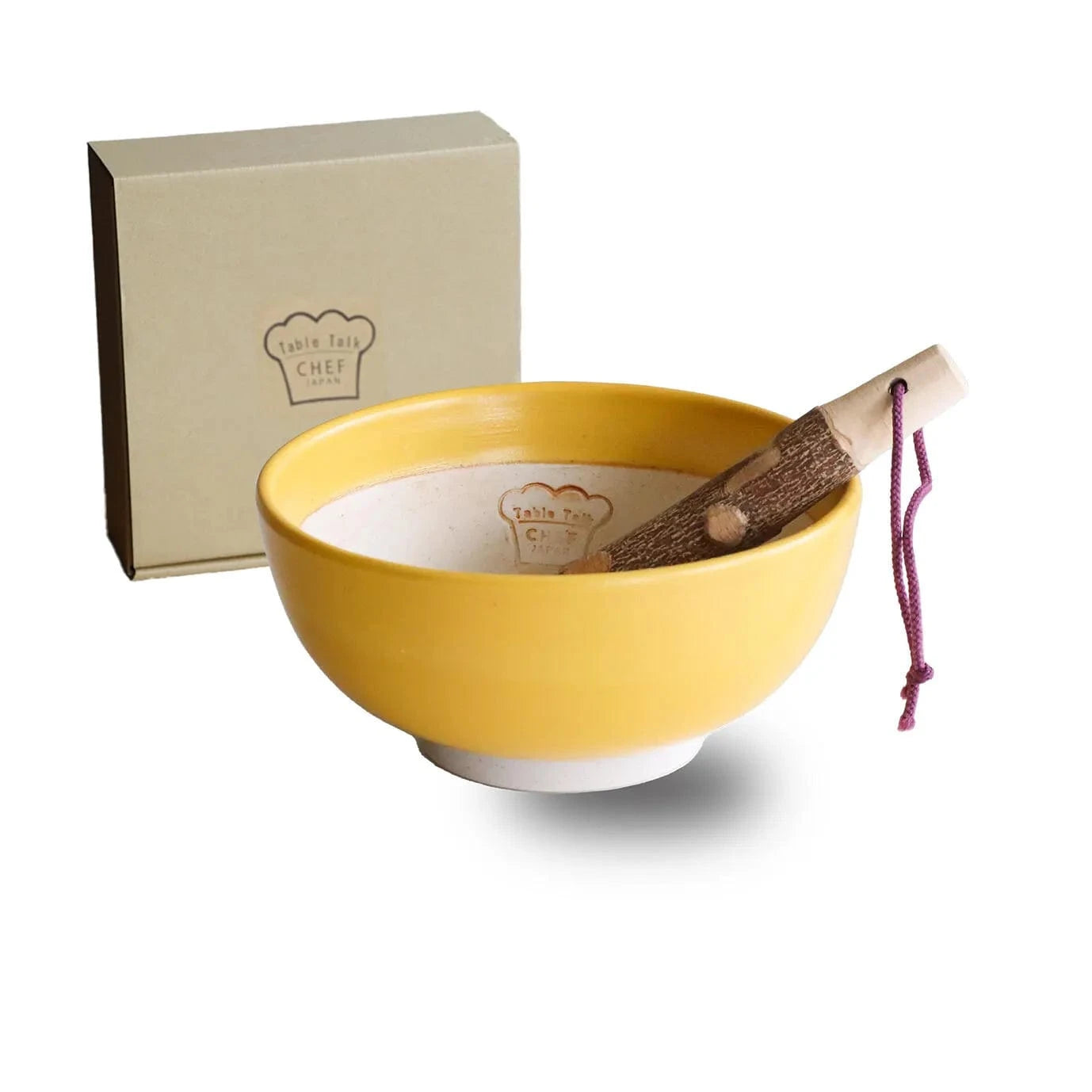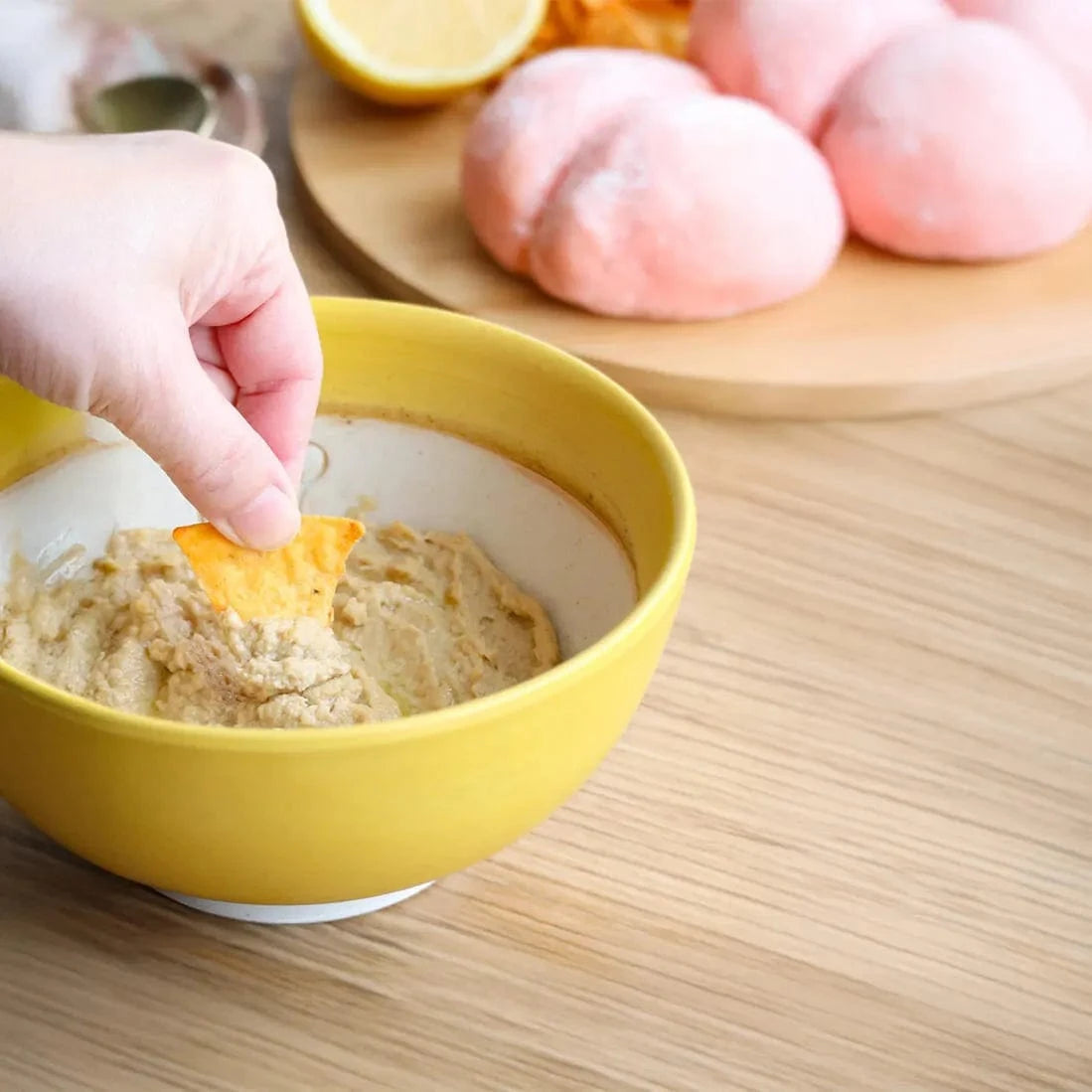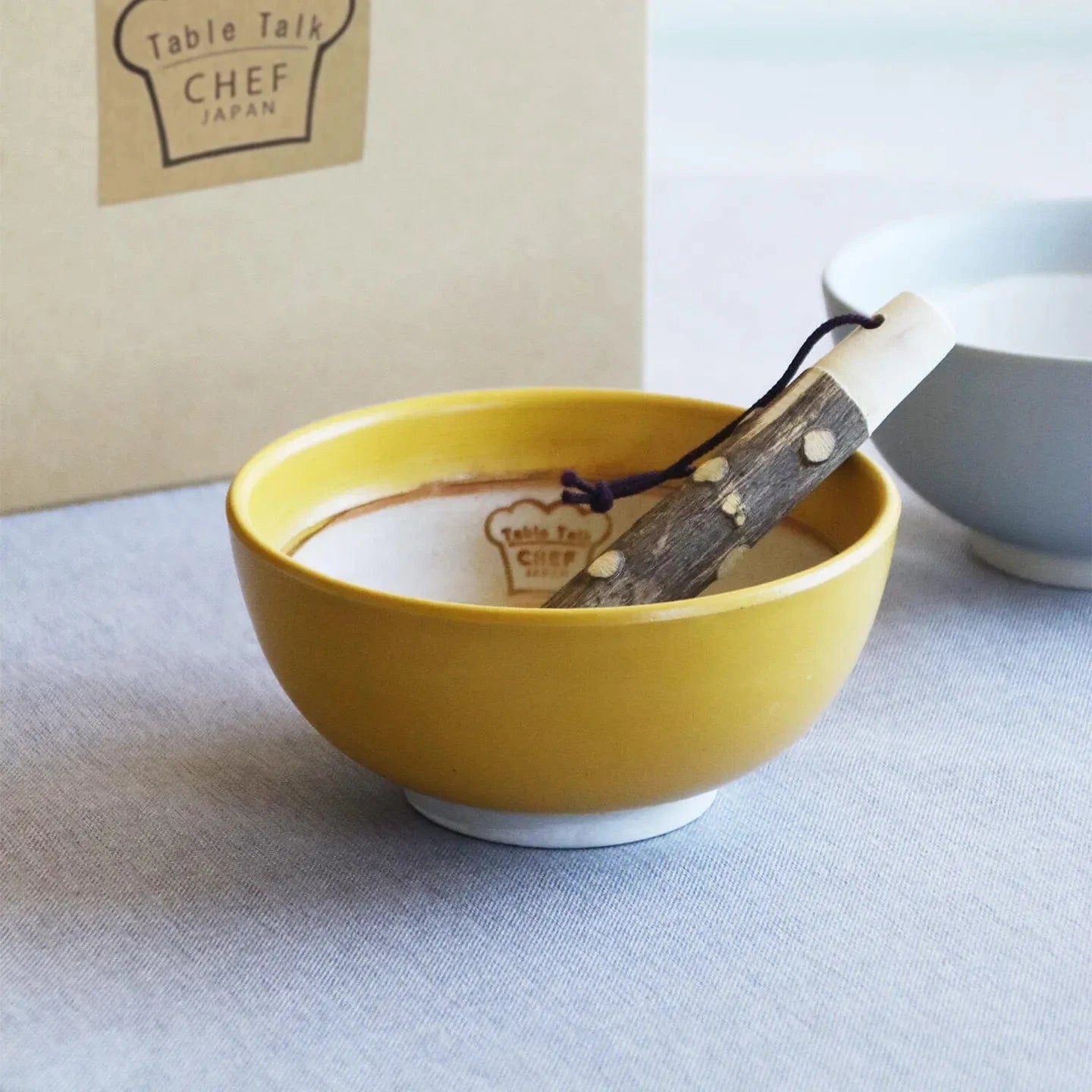


Mustard Mortar & Pestle Set
Fast & Secure Delivery from Japan to your Door [Shipping Policy]
No surprise U.S. customs fees. [How we handle U.S. Customs for you]
Shop Safely with Encrypted Checkout and Verified Gateways.
Pairs well with

Mustard Mortar & Pestle Set
Brighten Your Kitchen with Functional Beauty
Crafted in Japan with a user-first design philosophy, this mustard-colored mortar skips the traditional combed grooves in favor of a smoother grinding experience. Despite the absence of grooves, it delivers exceptional performance—ingredients don’t clog, and spices are easily brushed off with minimal effort. Ideal for preparing everything from freshly ground sesame or basil to nutritious baby food, this set is as versatile as it is beautiful.
The unique glaze and handcrafted form make each piece subtly one-of-a-kind, with natural variations that reflect the artisan's touch.
Whether you're creating condiments or plating directly from the bowl, this stylish mortar blends utility with table-ready charm.
Product Information
Care instructions
FAQs
All you need to know about Japanese Kitchenware Items.
Why is Japanese kitchenware so highly regarded around the world?
Japanese kitchenware is admired globally for its precise craftsmanship, aesthetic simplicity, and functional elegance. Rooted in centuries of tradition, each tool—from knives to donabe pots—is designed with intentionality, reflecting values such as monozukuri (the spirit of making things with excellence) and shibui (understated beauty). These products aren't just tools—they are cultural expressions of discipline, hospitality, and harmony with nature.
How does Japanese culture influence the design of kitchen tools?
In Japan, culinary preparation is seen as a form of art and mindfulness. This philosophy is reflected in the design of kitchenware: knives are forged like samurai swords with singular precision, mortars and pestles are grooved to enhance grinding efficiency, and ceramics are hand-glazed to emphasize wabi-sabi, the beauty of imperfection. Every curve, texture, and weight is intentional—supporting both form and function.
What makes Japanese ceramics and cookware unique compared to Western counterparts?
Japanese ceramics and cookware often prioritize the relationship between the material and the user. Local clays and natural glazes are chosen not just for durability, but for how they enhance flavor, retain heat, and feel in hand. Unlike mass-produced Western alternatives, many Japanese kitchenware items are handmade in regional kilns, passed down through generations of artisans, and carry a strong sense of place and heritage.
Is Japanese kitchenware still made using traditional methods today?
Yes. While some modern innovations have been introduced, many of Japan’s finest kitchenware items are still crafted using centuries-old techniques. Artisans continue to fire ceramics in wood-burning kilns, forge blades by hand, and shape tools with locally harvested woods or metals. This commitment to tradition ensures that each item carries both functional excellence and cultural authenticity.
How do Japanese households typically use and care for their kitchen tools?
In Japanese homes, kitchen tools are treated with deep respect. Knives are carefully sharpened and never put in the dishwasher. Wooden utensils are hand-washed and air-dried to prevent warping. Ceramics are often warmed before serving to enhance the dining experience. This careful maintenance reflects a broader cultural value of mottainai—the avoidance of waste and appreciation of every object’s life and purpose.

